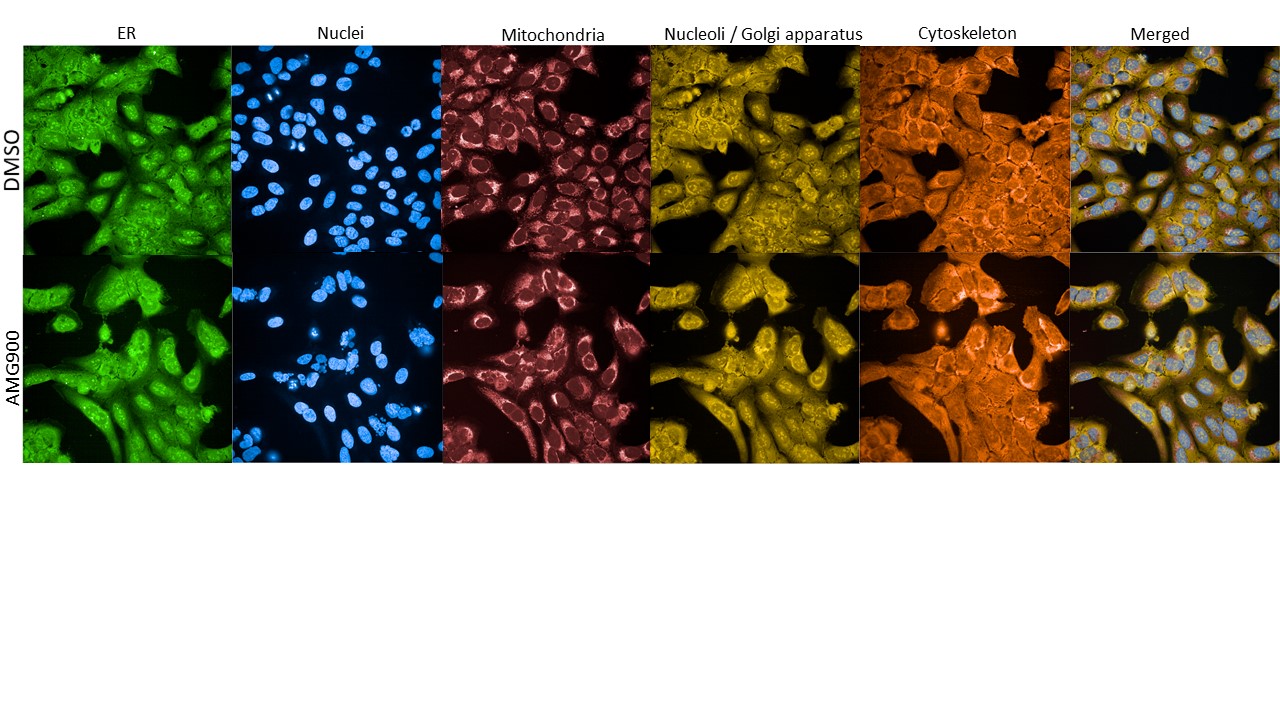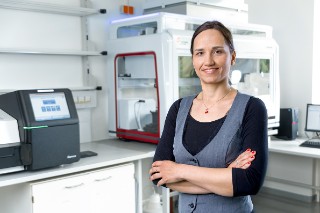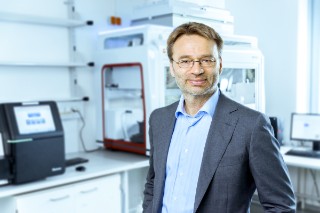Cell painting – a promising tool for next generation risk assessment
Aiming to reduce, refine, and replace animal experiments (3Rs principle), Fraunhofer ITEM researchers are implementing new-approach methodologies (NAMs) to characterize potential toxic effects of chemical compounds and processes. A powerful tool referred to as “cell painting” (CP) allows them to detect an erosion of cellular health upon exposure to stressors, caused, for example, by variation of the cell metabolic state or by genetic perturbations, already at an early stage of exposure. CP is a high-content imaging-based method involving multiplexed fluorescent staining of different cellular compartments simultaneously. Using automated image analysis, CP can identify more than 5000 cellular features, forming a “cellular fingerprint” that reflects different biological responses induced by noxious compounds or processes.
 Fraunhofer Institute for Toxicology and Experimental Medicine
Fraunhofer Institute for Toxicology and Experimental Medicine


